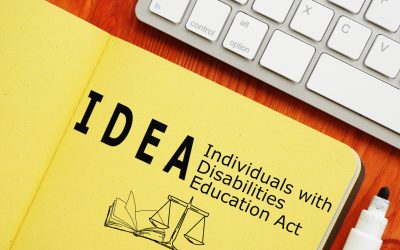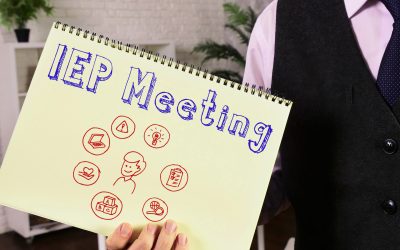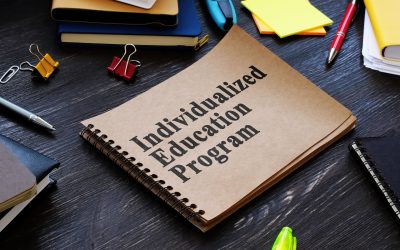In this training, participants will learn the 13 special education eligibility categories and how to support students with special needs in the least restrictive environment. Information on effective teaching strategies for each area of eligibility will be explored.
Events
Systematic Prompting
Participants will understand the progression of prompts from the least intrusive to the most intrusive and individualize them to the student’s needs.
Special Education Foundations
This training will provide an overview of the Individuals Disability Education Act (IDEA), child find, evaluation, eligibility, and IEP implementation.
Student Records
What is a pupil record as it relates to special education? This training will help administrators understand legal requirements for records better and provide a checklist for responding to requests more quickly, comprehensively, and efficiently.
Red Flags
This training will assist administrators in identifying red flags that indicate potential issues with a student’s program and services. Participants will learn how to anticipate parent requests for services, aide support, and other common requests and what actionable steps districts should take when these warning signs are presented.
Facilitating IEP Meetings
Facilitation is the process in which an individual assists an IEP team with communication and problem-solving strategies so the IEP team can develop a child-focused educational program while maintaining positive working relationships. Administrators will walk away with an understanding of the facilitator role, stages of facilitation, crucial communication and listening skills, and strategies and techniques to facilitate an IEP meeting successfully.
Parent Consent and Exceptions
This training will guide administrators on technical next steps when parents provide full consent to the IEP or sign with exceptions.
Fundamentals of IEP Note Taking
This training is designed to teach IEP administrators best practices for taking IEP notes. Information presented will include what should and should not be stated in the IEP notes, best practices for IEP note-taking, and how to handle disagreements over IEP notes.





